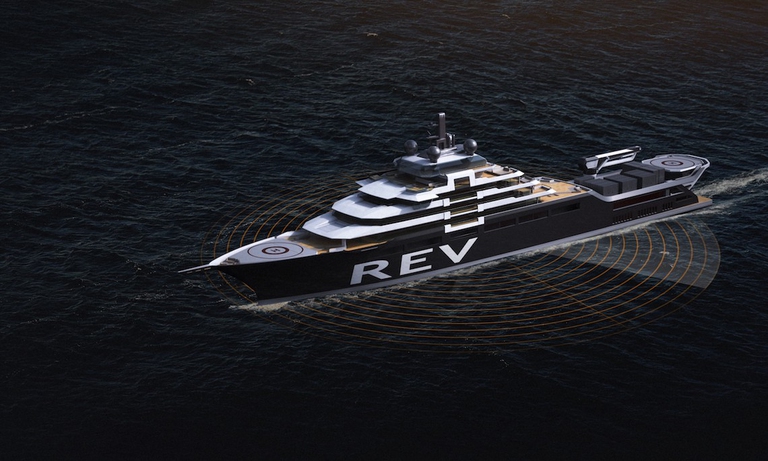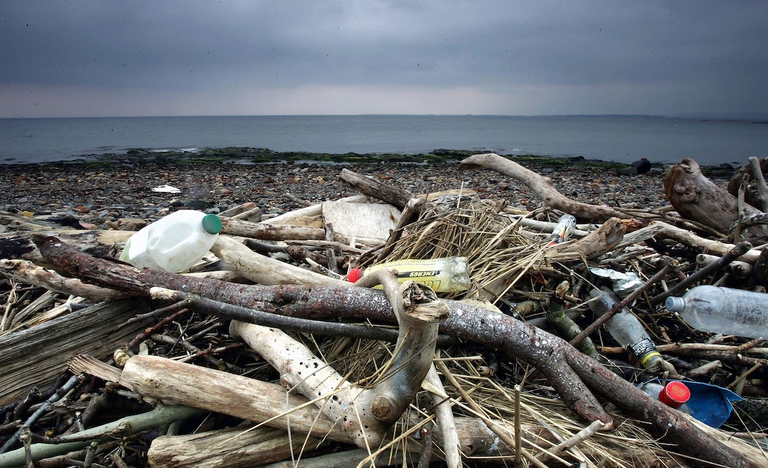
Sharon Lavigne, one of the six winners of the 2021 Goldman Environmental Prize, is fighting to protect her community from plastics corporations.
La nave sarà varata nel 2020 e ospiterà le strumentazioni più all’avanguardia per la ricerca di plastica nel mare. Il progetto realizzato con il Wwf.
Norwegian billionaire Kjell Inge Rokke announced on 2 May that he will fund the construction of a high-tech research vessel. The ship will be donated to the scientific community with the aim of detecting and monitoring the presence of plastic in oceans.
https://www.youtube.com/watch?v=IN0MHPnRYWc
Rokke is considered Norway’s second richest man, with 2 billion dollars of assets. “I want to give the lion’s share of what I have earned back to society. This ship is part of that,” he told daily newspaper Aftenposten. This move marks a turning point in his life. Indeed, Rokke made his fortune thanks to the fishing industry and, most of all, hydrocarbons.
The 181-metre-long vessel will host a crew of 30 people and a 60-strong research team. It will be built in collaboration with WWF and is scheduled to be launched in 2020. Thanks to state-of-the-art technologies aboard, the vessel will make researches on ocean microplastics easier. “This vessel will be able to take marine research to a completely new level. Finding solutions has never been more urgent,” said Nina Jensen, the head of WWF Norway.
The issue of plastic pollution in oceans, which is increasingly affecting marine life and ecosystems, has got back in the spotlight after the release of a study published in the journal Sciences Advances. The research confirms the presence of plastic debris in the Arctic Ocean and defines the area a dead-end for floating plastic.
Also, the study highlights how the presence of plastic in the Atlantic, Pacific, and Indian oceans was previously assessed by detailed researches, but it has been confirmed off Greenland, North Cape and in the Barents Sea only now. In the Arctic there are smaller amounts of plastic debris than, say, in the Mediterranean Sea, but that doesn’t mean are less worrying.
Scientists suggest that the Arctic could be home to up to 1,200 tonnes of plastic debris. They still don’t know the impact plastic has on sea beds as they got to assess only floating plastic, but they claim many debris have sunken or have been trapped in the ice cap.
Siamo anche su WhatsApp. Segui il canale ufficiale LifeGate per restare aggiornata, aggiornato sulle ultime notizie e sulle nostre attività.
![]()
Quest'opera è distribuita con Licenza Creative Commons Attribuzione - Non commerciale - Non opere derivate 4.0 Internazionale.
Sharon Lavigne, one of the six winners of the 2021 Goldman Environmental Prize, is fighting to protect her community from plastics corporations.
Plastic pollution is airborne too. Microplastics are being carried across continents by the wind, as a recent study reveals.
A group of experts in Tokyo suggested pouring radioactive water from Fukushima into the open sea. A marine biochemist explains the consequences of this absurd decision.
Levels of particulates in New Delhi in 2020 were once again far above safety thresholds, with extremely serious health consequences for its citizens.
The decline in grey and humpback whales in the Pacific and Atlantic Oceans has been traced to food shortages caused by rising ocean temperatures.
The United Nations has launched a major international alliance for ocean science, undertaking a mission close to all our hearts.
A major oil spill in the Ecuadorian Amazon in April has left the Coca River polluted. The indigenous Kichwa are suing the companies whose pipelines broke.
Molecules that eat up plastic waste, including PET bottles, may soon become widely used as scientists leap ahead in developing new super enzymes.
In Italy’s Land of Fires between Naples and Caserta, activists like Carmen Medaglia are fighting to promote new ways of managing waste.









